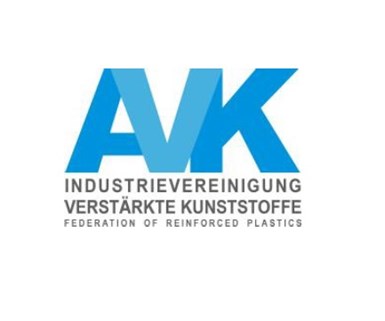Continuous fiber-reinforced thermoplastics data added to CAMPUS database
The new data, which will be released in October, is the result of an ongoing material standardization and characterization effort led by German reinforced plastics company AVK.

A consortium of material manufacturers, led by AVK - Industrievereinigung Reinforced Plastics e. V. (Frankfurt, Germany) has announced that the CAMPUS plastics materials database will now include material data on continuous fiber-reinforced thermoplastics. The extended version of CAMPUS will be publicly released next month, timed with the K 2019 plastics trade show taking place Oct. 16-23 in Düsseldorf, Germany.
According to AVK, the CAMPUS database has been in use by plastics producers for more than 30 years to provide customers with high-quality data about their materials. Until now, CAMPUS has mainly offered data on injection-moldable thermoplastics, and AVK cites a lack of consistent material characterization practices as the challenge to adding data for continuous fiber-reinforced thermoplastics.
In 2015, a working group of material manufacturers led by AVK set about developing a generally accepted procedure for the characterization of continuous fiber-reinforced thermoplastics in the form of tradable semi-finished products (such as organosheets or tapes) to international standards.
Members of the working group include manufacturers Arkema (King of Prussia, Pa., U.S.), Bond-Laminates / LANXESS (Brilon, Germany; Pittsburgh, Pa., U.S.), Covestro (Leverkusen, Germany) DSM (Evansville, Ind., U.S.), Evonik (Parsippany, N.J., U.S.), Mitsui (Düsseldorf, Germany), Profol (Cedar Rapids, Iowa, U.S.), SABIC (Pittsfield, Mass., U.S.) and Solvay (Alpharetta, Ga., U.S.), as well as scientific management from the Institute of Composite Materials (Kaiserslautern, Germany). The project also includes close exchange with a monitoring committee made up of automotive OEMs such as BMW, Daimler, Ford and Opel.
The first results of the project enable the release of a new class of continuous fiber-reinforced materials to the CAMPUS database. Users will have access to the essential parameters for describing the basic material properties, enabling them to make material choices. In addition to general product information such as manufacturer information and processing information, the database will also include mechanical data (such as directional stiffness and strength), thermal data (such as coefficient of thermal expansion) and other general characteristics (such as density).
Future supplements to this information will include more information such as the use of the data in computer-aided engineering (CAE) software.
Related Content
-
Manufacturing the MFFD thermoplastic composite fuselage
Demonstrator’s upper, lower shells and assembly prove materials and new processes for lighter, cheaper and more sustainable high-rate future aircraft.
-
Composites manufacturing for general aviation aircraft
General aviation, certified and experimental, has increasingly embraced composites over the decades, a path further driven by leveraged innovation in materials and processes and the evolving AAM market.
-
Combining multifunctional thermoplastic composites, additive manufacturing for next-gen airframe structures
The DOMMINIO project combines AFP with 3D printed gyroid cores, embedded SHM sensors and smart materials for induction-driven disassembly of parts at end of life.

.jpg;width=70;height=70;mode=crop)













.jpg;maxWidth=300;quality=90)
